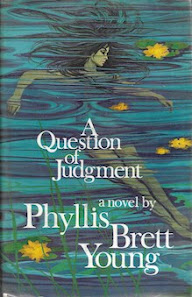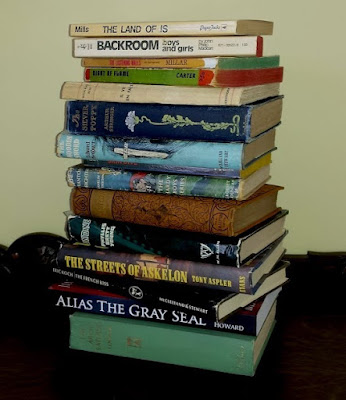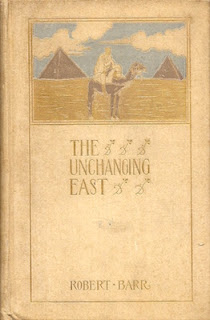One Way Street
Dan Keller [Louis Kaufman]
London: Hale, 1960
190 pages
Dan Keller [Louis Kaufman]
London: Hale, 1960
190 pages
Toronto boy Paul Saber has had a rough ten years. The earliest were spent as a commando in the Pacific theatre. After the fighting stopped, just as Paul prepared his return home, he received a "Dear John" letter. And so, Paul remained overseas, building an import-export business in Saigon. One presumes it was through this endeavour that he somehow ended up at the Battle of Dien Bien Phu:
"I wasn't a combatant, but I got mixed up in the whole mess and was captured by the Reds. It took me a year to escape back to Saigon, by that time there was little more left of my business than enough to pay my passage home."
He might've saved some money by taking a more direct route. Rather than cross the Pacific to Vancouver, Paul makes for Halifax, then travels the final leg to Toronto by train. He's only just set foot on the platform at Union Station when the jostling crowd forces an embrace with a fellow passenger:
"I am sorry," I apologised. "I'm afraid I lost my balance."She smiled. "It was as much my fault as yours, everyone is in such a rush."
This is a Canadian novel.
Toronto has changed. Not only is there a subway, the Royal York, at which Paul has a reservation, has undergone a significant expansion. Standing in its lobby, he spies the woman whose warm body he'd held at Union Station. She did not book ahead, meaning she's out of luck in getting a room. The helpful front desk clerk manages to secure accommodation at the Bentley, a much lesser hotel, and she sets off. Paul is so taken by her beauty that he follows at a discrete distance as she negotiates the city's darkened icy streets. Some might call it stalking. In any case, it's good that he did because she's pulled into an alley by two men. Paul rushes to the rescue, kneeing one in the groin as the other runs away.
Toronto has changed. Not only is there a subway, the Royal York, at which Paul has a reservation, has undergone a significant expansion. Standing in its lobby, he spies the woman whose warm body he'd held at Union Station. She did not book ahead, meaning she's out of luck in getting a room. The helpful front desk clerk manages to secure accommodation at the Bentley, a much lesser hotel, and she sets off. Paul is so taken by her beauty that he follows at a discrete distance as she negotiates the city's darkened icy streets. Some might call it stalking. In any case, it's good that he did because she's pulled into an alley by two men. Paul rushes to the rescue, kneeing one in the groin as the other runs away.
 |
| The Princess Lounge, Royal York Hotel, 1954 |
He ushers the woman back the Royal York – the Princess Lounge, to be specific – where they down martinis, get to know one another, and fall madly, wildly, deeply, exasperatingly in love. No exaggeration. One Way Street is one of too many novels in which characters fall in love at first meeting.
Or is it second meeting? Does the bump (no grind) at Union Station count?
Or is it second meeting? Does the bump (no grind) at Union Station count?
Paul's new love is beautiful blonde Patricia Bailey, a sophisticated and svelte Montrealer who models furs for a living. In the midst of their flirtations, Paul offers to exchange his room at the Royal York for hers at the Bentley. Patricia accepts. Because Patricia is a lady, she does not invite Paul in for a nightcap. Because Paul is a gentleman, he leaves the Royal York, trudging through frozen Toronto to the Bentley. Paul takes her room, and dreams of a new life with his new girl.
He awakens to find the Bentley in flames. Eighty-two will perish, but not our Paul. He ties together bedsheets and scales the outside of the building to the room one storey below. A body with bullet hole in the forehead lies on its floor, but given Paul's immediate circumstances, it is ignored. Paul makes for the hallway and is rescued by firefighters, but not before saving a young woman from certain death.
Our hero's recovery is a slow one; much of it is spent slipping in and out of consciousness. He emerges to find himself in the home of a prominent physician named Kahn. Seems a good thing, until Paul realizes that he's being held captive.
Our hero's recovery is a slow one; much of it is spent slipping in and out of consciousness. He emerges to find himself in the home of a prominent physician named Kahn. Seems a good thing, until Paul realizes that he's being held captive.
Because this is a mystery novel, further descriptions of the plot will only serve as spoilers. Still, there are things worth noting.
Let's begin with beautiful Patricia Bailey, who is not only a model, but a Montreal model. She's sharp as a tack, quick as a fox, and remarkably loyal. After she accepts Paul's marriage proposal – during what is either their second or third meeting – Patricia reveals that she comes from an extraordinarily wealthy family. Daddy is eager to give her anything and everything, but Patricia wants to prove that she came make it on her own. In short, Patricia Bailey is a fantasy figure, with the emphasis on figure.
One Way Street should be of interest as one of the first mystery novels set in Toronto, but it is not. Union Station and the Royal York figure as settings, but Keller doesn't describe either. Remove these – along with fleeting references to the Toronto Star, the King Edward Hotel, the Ford Hotel, Front Street – and One Way Street could have been set in any other Canadian city.
The alleyway assault on Patricia aside, every crime in One Way Street is related to the heroin trade. This revelation, leads back to a character whom Paul confronts as the novel draws to a conclusion. He is "not without influence" in Toronto:
"I've moved heaven and earth, done everything in my power to get the narcotic laws changed, without success. There's only one way left open to me. If I can set up a clinic, get it operating successfully; prove that the drug addict is not necessarily a menace to society providing he is under medical care and is ensured a supply without having to murder or steal for it; then, when I'm caught, maybe people will sit up and take notice."
At the end of it all, this character, not Paul, proves to be the novel's greatest hero.
Pierre Poilievre will disagree.
Pierre Poilievre will disagree.
This may explain Paul's return to Toronto via Halifax.
Object: A very attractive hardcover in brown boards. The woman on the jacket is meant to be Patricia, right? If so, she should be a blonde with green eyes. Did you notice the two men in the alleyway? Are they the men who tried to mug her? I'm not so sure. Patricia never wears a yellow dress, and no woman would venture outside like that in a Toronto winter. Still, I like the illustration and wish the artist was credited.
My copy was purchased last year from a bookseller in Rochester, Kent. Price: £80.00.
The jacket offers no information about the author – more here – but it does have adverts for several other Hale novels.
Access: One Way Street enjoyed one lone printing. There were no further editions. As of this writing, four copies are being sold online. At the low end is a jacketless copy going for US$50.00. The most expensive is another jacketless copy going for US $427.44. Look in the middle and you'll find two signed copies, with jackets, at US$110.00 and US$187.50.
You know which to buy.
Library and Archives Canada has a copy, as does the University of Calgary.


































